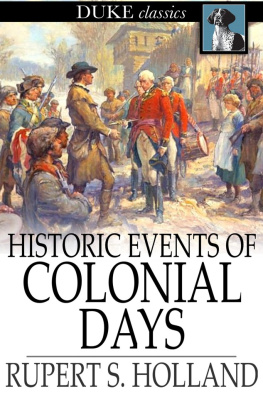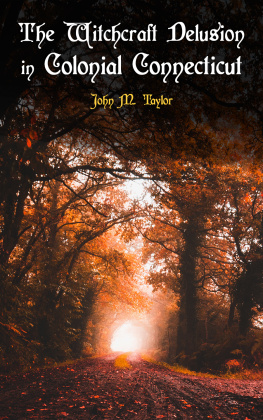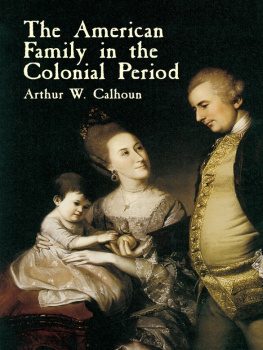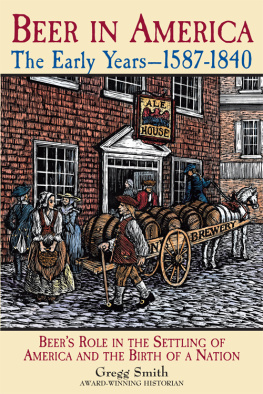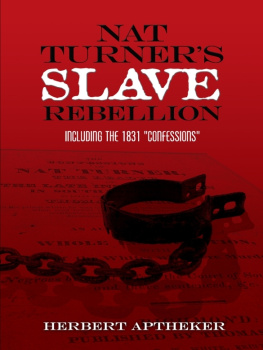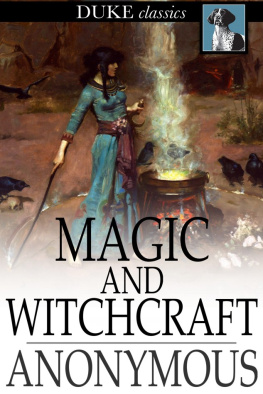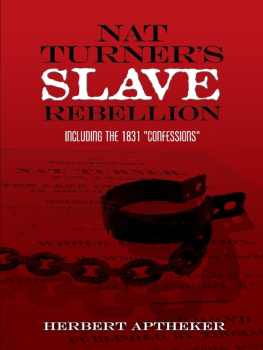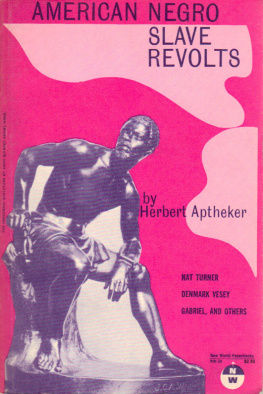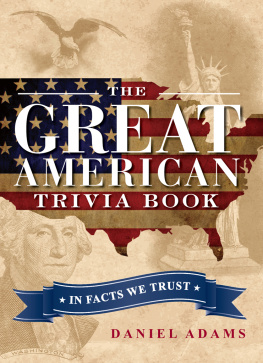Rupert S. Holland - Historic Events of Colonial Days
Here you can read online Rupert S. Holland - Historic Events of Colonial Days full text of the book (entire story) in english for free. Download pdf and epub, get meaning, cover and reviews about this ebook. year: 2013, publisher: Duke Classics, genre: Adventure. Description of the work, (preface) as well as reviews are available. Best literature library LitArk.com created for fans of good reading and offers a wide selection of genres:
Romance novel
Science fiction
Adventure
Detective
Science
History
Home and family
Prose
Art
Politics
Computer
Non-fiction
Religion
Business
Children
Humor
Choose a favorite category and find really read worthwhile books. Enjoy immersion in the world of imagination, feel the emotions of the characters or learn something new for yourself, make an fascinating discovery.
- Book:Historic Events of Colonial Days
- Author:
- Publisher:Duke Classics
- Genre:
- Year:2013
- Rating:5 / 5
- Favourites:Add to favourites
- Your mark:
- 100
- 1
- 2
- 3
- 4
- 5
Historic Events of Colonial Days: summary, description and annotation
We offer to read an annotation, description, summary or preface (depends on what the author of the book "Historic Events of Colonial Days" wrote himself). If you haven't found the necessary information about the book — write in the comments, we will try to find it.
Early American history is brought to life in this thrilling collection of tales from the period surrounding the tumultuous birth of the nation. Its a must-read for history buffs, or for students seeking a much more enthralling take on topics like Puritanism, pirates, witchcraft, and slave revolts that are often recounted in a dry, musty manner in textbooks.
Historic Events of Colonial Days — read online for free the complete book (whole text) full work
Below is the text of the book, divided by pages. System saving the place of the last page read, allows you to conveniently read the book "Historic Events of Colonial Days" online for free, without having to search again every time where you left off. Put a bookmark, and you can go to the page where you finished reading at any time.
Font size:
Interval:
Bookmark:

First published in 1916
ISBN 978-1-62013-442-9
Duke Classics
2013 Duke Classics and its licensors. All rights reserved.
While every effort has been used to ensure the accuracy and reliability of the information contained in this edition, Duke Classics does not assume liability or responsibility for any errors or omissions in this book. Duke Classics does not accept responsibility for loss suffered as a result of reliance upon the accuracy or currency of information contained in this book.
The good ship Lyon had been sixty-seven days outward bound from theport of Bristol, in England, when she dropped anchor early in February,1630, at Nantasket, near the entrance of Boston Harbor, in New England.The ship had met with many winter storms, and passengers and crew wereglad to see the shores of Massachusetts. On the ninth of February theLyon slipped through a field of drifting ice and came to anchor beforethe little settlement of Boston. On board the ship was a young man whowas to play an exciting part in the story of the New World.
Yet this young man, Roger Williams by name, seemed simple and quietenough, as he and his wife came ashore and were welcomed by GovernorJohn Winthrop. He was a young preacher, filled with a desire to carryhis teaching to the new lands across the Atlantic Ocean, and he had beenasked to be the minister of the First Church in Boston. As it turnedout, however, his ideas were not the ideas of the people of Boston, andhe soon found that the First Church was not the place for him.
So after a short stay in Boston Roger Williams and his wife went toPlymouth, which was then a colony separate from Massachusetts Bay.William Bradford, the governor of Plymouth, and his neighbors made theyoung preacher welcome, and there Roger Williams stayed for two years,teaching and exhorting and prophesying, as ministers were said to do inthose days. There his daughter Mary was born. Roger Williams, however,was given to argument and could be very obstinate at times, andpresently he fell out with his neighbors at Plymouth, and moved again,this time to Salem. There he was given charge of the church, and therehe, like many other free-thinking men, fell under the displeasure of thegovernor of Massachusetts Bay. For some things he taught he was summonedbefore the General Court of the Bay, and the Court ordered him to leavethe colony. He did not go at once, and Governor Winthrop let him stayuntil the following January, when rumors came to Boston that RogerWilliams was planning to lead twenty men of his own way of thinking tothe country about Narragansett Bay, and there establish a colony of hisown. John Winthrop objected seriously to any such performance.
The governor sent Captain John Underhill in a sailboat to Salem, withorders to seize Roger Williams and put him on board a ship that waslying at Nantasket Roads, ready to sail for England. But when CaptainUnderhill and his men marched up to the house of Williams they foundthat the man they wanted had fled three days before. There was noknowing which way he had gone, the wilderness stretched far and wide towest and south, and so they gave up the search for him and reported toGovernor Winthrop that Roger Williams had disappeared.
Five friends of Williams, knowing that he had been commanded to leaveMassachusetts Bay, had gone into the wilderness and built a camp for himon the banks of a river which was called by the three names of theBlackstone, for the first settler there, the Seekonk, and the Pawtucket.There Williams joined them, and there they stayed during the winter andplanted their crops in the spring. Then a messenger from the governor ofPlymouth came, saying that their plantation was within the borders ofthe Plymouth Colony, and asking in a friendly way that Roger Williamsand his friends should move to the other side of the river.
The settlers did not like to lose the harvest of their new crops, butneither did they want to make enemies at Plymouth, and so they launchedtheir canoe and paddled down the river in search of a new site. As theywent down the stream tradition says that a group of Indians, standing ona great rock near the river's bank, recognized Roger Williams as a manwho had once befriended them. They cried their greetings to the whitemen, and the latter landed and went up the rock and talked with theIndians. Then, taking their canoe again, the white men went on down theriver to its mouth, rounded a promontory, and came into an estuary ofNarragansett Bay. Here they paddled north a short distance, until theyreached the point where the Woonasquatucket and the Moshassuck Riversjoined, and there they landed, near a spring of sweet water. Here theypitched their camp, founding what was to be known in time as theProvidence Plantations.
The little colony of six men was soon joined by others, and presently agovernment was formed, somewhat like those of Massachusetts Bay andPlymouth. There were many Indians along the shores of Narragansett Bay,and Roger Williams made it his concern to be on friendly terms with allof them. When he had lived at Plymouth and at Salem he had met manyIndians and had been liked by them. Canonicus and his nephewMiantonomoh, chiefs of the Narragansetts, ruled over all this newregion. When the six settlers reached their new plantation these chiefswere at odds with a chief to the north named Ausamaquin. Williams set towork to reconcile the hostile Indians, and while he did so he made suchfriends of the Narragansett chiefs that they gave him a large tract ofland, stretching from the Pawtucket to the Pawtuxet Rivers. In his turnRoger Williams sold the land to his company for thirty pounds.
Here, as the little colony of Providence Plantations grew, RogerWilliams tended to the government of it and preached constantly to hispeople. All was not smooth sailing, however, even here in thewilderness. Men disagreed with the preacher, and he found it hard tokeep them from continually fighting with each other. When there was nodanger of trouble with the Indians, the settlers stirred up trouble forthemselves, and Roger Williams had his hands full trying to keep firstthe white, and then the red, men in order.
Every little while there would be some dispute, usually ending inbloodshed, between Indians and white men. Two white traders, venturinginto the country between the two rivers now known as the Pawcatuck andthe Thames, were killed by chiefs of the Pequods, who were the strongesttribe in all New England. News of this came to Plymouth, and was sentfrom there by messenger to the governor of Massachusetts Bay. Not longafterward a settler named John Oldham was killed by a party of Indiansas he was sailing his own boat off Block Island. The white men, puttingthis and that together, decided that the Pequods were planning to killall the settlers that came into their country, and thought it likelythey were trying to get the Narragansett chiefs to join them in this. Ifthese two tribes joined forces it would go hard with the white men, andso the people of Massachusetts Bay sent a message to Roger Williams,urging him to see his friends the Narragansetts, and try to keep themfrom joining with the Pequods.
Williams was brave, and he had need to be when he made his visit to thewigwam of the chief, Canonicus. He found men of the Pequods there,trying to induce Canonicus and the other Narragansett sachems to jointhem in war on the whites. He came as a friend, he showed no fear, andhe stayed for several days, sleeping among them at night, as if he hadno suspicion that the Pequods might want to kill him, alone and unarmedamong so many of them. And the Pequods did not touch him. He had learnedsomething of the Indian tongue while he lived at Plymouth and Salem, andhe talked with them and the Narragansetts, urging them to be friendswith the white men who had come to live among them.
Font size:
Interval:
Bookmark:
Similar books «Historic Events of Colonial Days»
Look at similar books to Historic Events of Colonial Days. We have selected literature similar in name and meaning in the hope of providing readers with more options to find new, interesting, not yet read works.
Discussion, reviews of the book Historic Events of Colonial Days and just readers' own opinions. Leave your comments, write what you think about the work, its meaning or the main characters. Specify what exactly you liked and what you didn't like, and why you think so.

